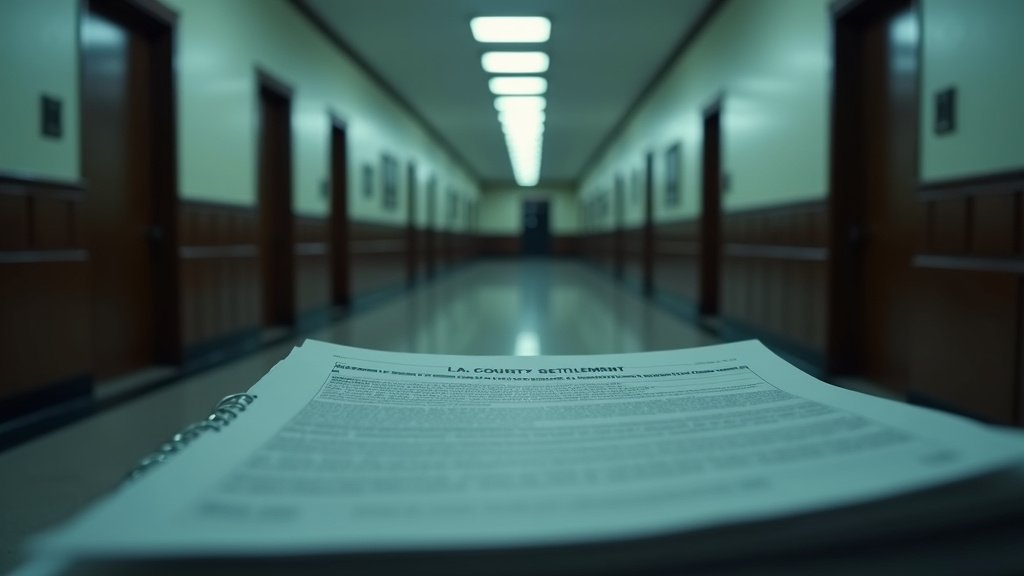Los Angeles County is set to pay an additional $828 million to victims who allege they suffered childhood sexual abuse in county facilities, marking a second major settlement this year. This tentative agreement, announced on October 17, 2025, addresses over 400 lawsuits and follows a record-breaking $4 billion settlement approved in April 2025 for similar claims. The combined payouts approach $5 billion, reflecting the profound impact of a state law that has reopened the door for victims of historical abuse to seek justice.
New Settlement Details and Legal Context
The latest $828 million agreement covers lawsuits alleging abuse in county facilities between 1959 and 2023. These cases were filed under California’s Assembly Bill 218 (AB 218), enacted in 2020. This law significantly extended the statute of limitations for victims of childhood sexual abuse to file lawsuits against public entities, granting them 22 years from the age of adulthood to bring a case, a substantial increase from the previous eight years. AB 218 also lowered the burden of proof required in such claims, leading to a surge in litigation across the state. The cases involved in this new settlement primarily concern juvenile offenders housed in county probation facilities.
A Precedent-Setting Year for Settlements
This $828 million deal is the second substantial payout for L.A. County this year related to child sexual abuse allegations. In April 2025, the county reached a landmark $4 billion settlement to resolve approximately 11,000 claims. Those earlier lawsuits predominantly stemmed from abuse at facilities like the MacLaren Children’s Center and other county-run juvenile halls and foster homes dating back to the 1950s and continuing through the 2000s. The combined financial commitment of nearly $5 billion underscores the scale of the historical abuse and the county’s ongoing efforts to address these deeply troubling issues. Officials have noted that L.A. County is still facing an estimated 2,500 additional pending sex abuse lawsuits, potentially bringing the total number of claims to over 14,000.
Addressing Fraudulent Claims and Vetting Processes
The significant settlements have also brought heightened scrutiny and concerns regarding the integrity of the claims. Recent investigations, notably by the Los Angeles Times, have surfaced allegations that some plaintiffs in the $4 billion settlement were potentially paid to file false claims, particularly involving the Downtown L.A. Law Group. In response, L.A. County has implemented stringent anti-fraud protocols for both the initial $4 billion settlement and the new $828 million agreement. Retired judges will serve as independent allocators to review each claim for credibility and severity of abuse. Plaintiffs determined to have submitted fraudulent claims will be denied any compensation from the settlement funds. Claims associated with the DTLA Law Group will undergo an even more rigorous review process, including potential interviews and requests for further documentation.
Financial Strain and Calls for Reform
The mounting liabilities from these settlements pose a significant financial challenge for Los Angeles County. Officials have indicated that the costs associated with AB 218 could necessitate cuts to critical public services and require the county to consider borrowing. Acting Chief Executive Officer Joe Nicchitta stated that without legislative reform, these escalating financial burdens could undermine essential safety-net programs that communities depend on. County Counsel Dawyn Harrison has also voiced concerns, urging legislative changes to prevent what she described as “unscrupulous lawyers” from profiting at the expense of genuine survivors, and emphasizing the need to protect public funds from exploitation. These financial pressures are particularly acute as the county recently mandated budget trims across most departments.
Systemic Changes and Future Outlook
In addition to the financial settlements and fraud prevention measures, L.A. County is implementing broader reforms aimed at preventing future abuse. These include a new hotline and website for reporting allegations against county employees, enhanced vetting measures for personnel, and a zero-tolerance policy for substantiated abuse cases. The county continues to call for legislative action in Sacramento to address the ongoing financial and legal challenges posed by AB 218. While the settlements represent a significant step towards compensating survivors, the financial implications and the ongoing caseload indicate that this remains a critical and evolving issue for Los Angeles news and governance. The tentative agreements await final approval from the County Claims Board and the Board of Supervisors.
This ongoing saga, featured prominently in current Los Angeles news, highlights the complex intersection of historical trauma, legal accountability, and fiscal responsibility facing L.A. County, as it navigates a path toward healing and reform.





